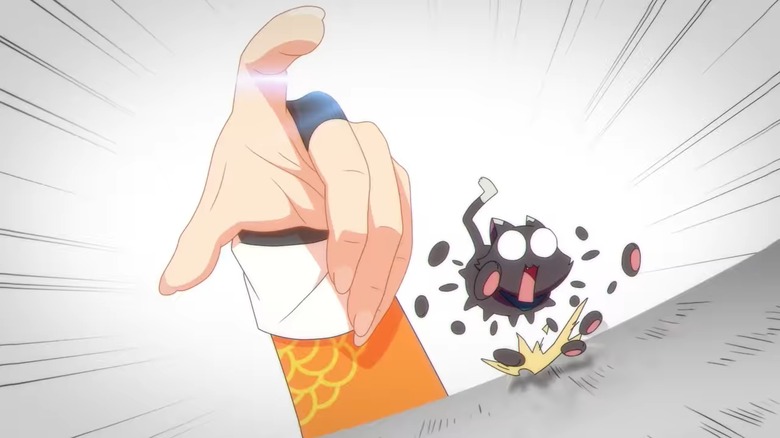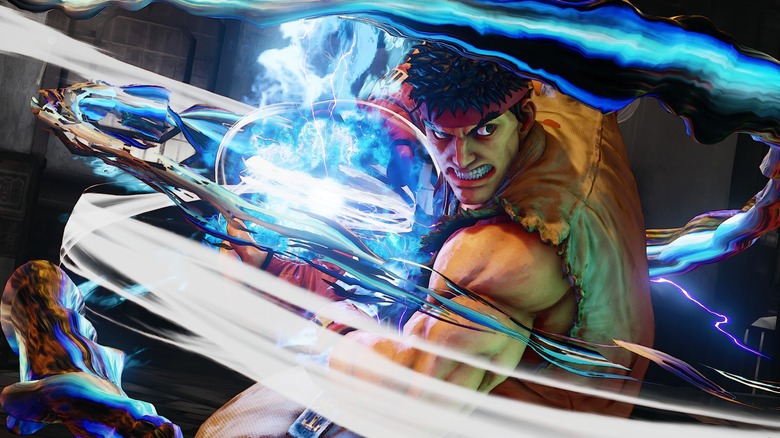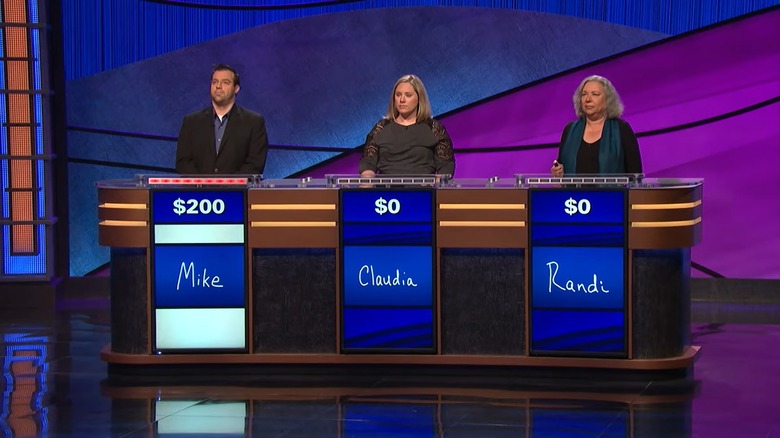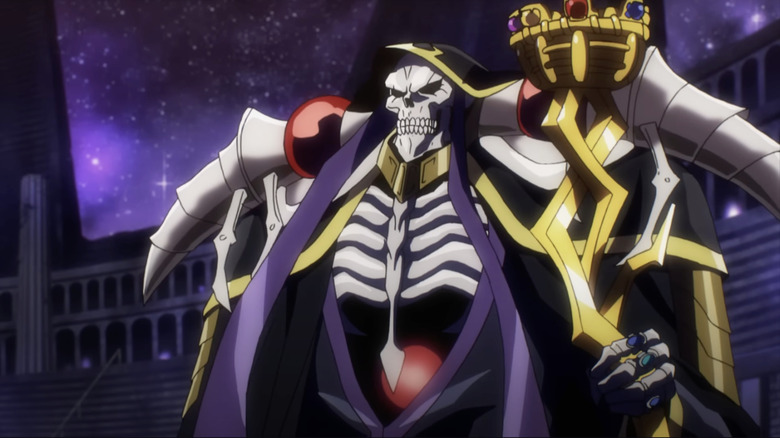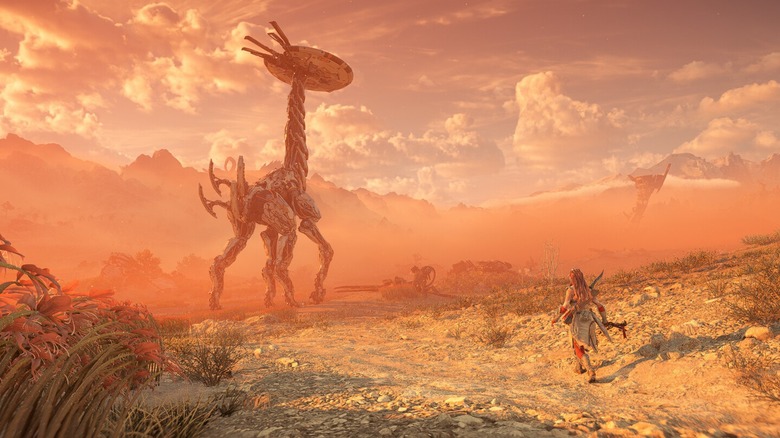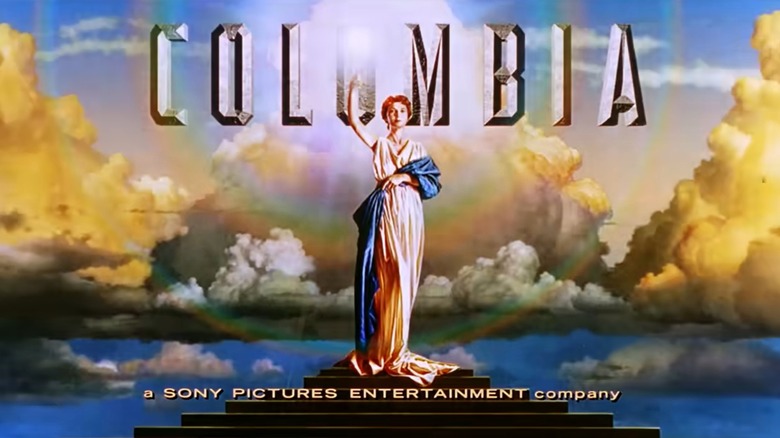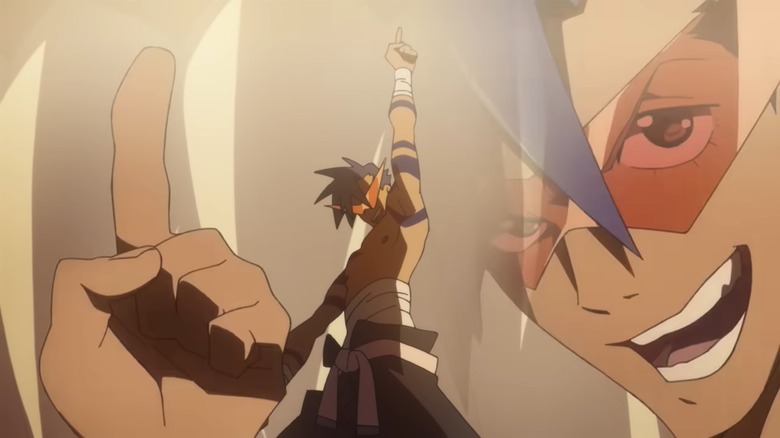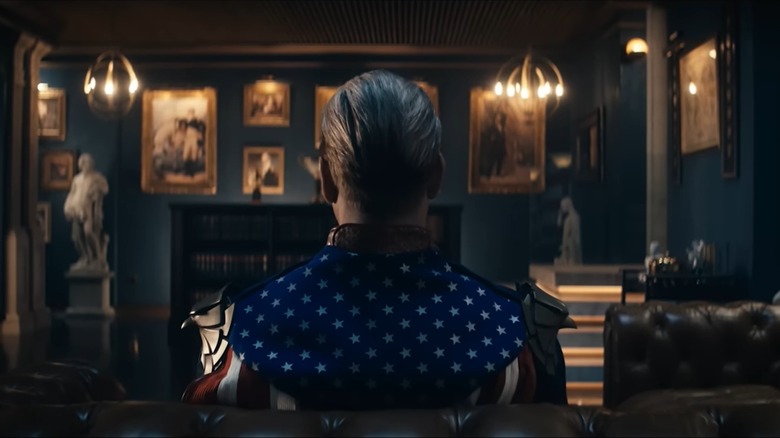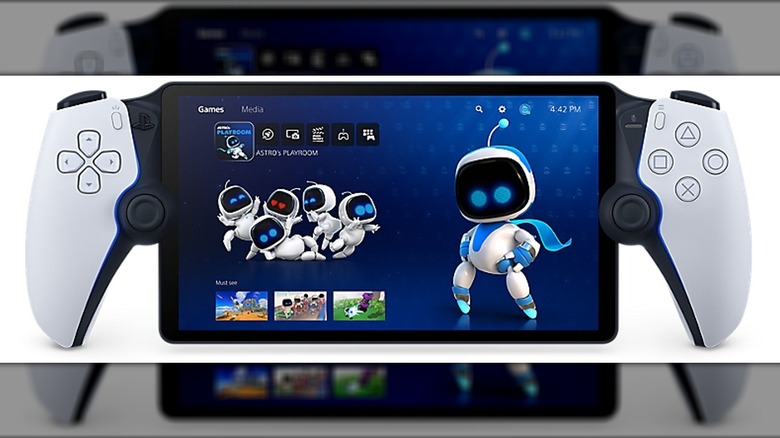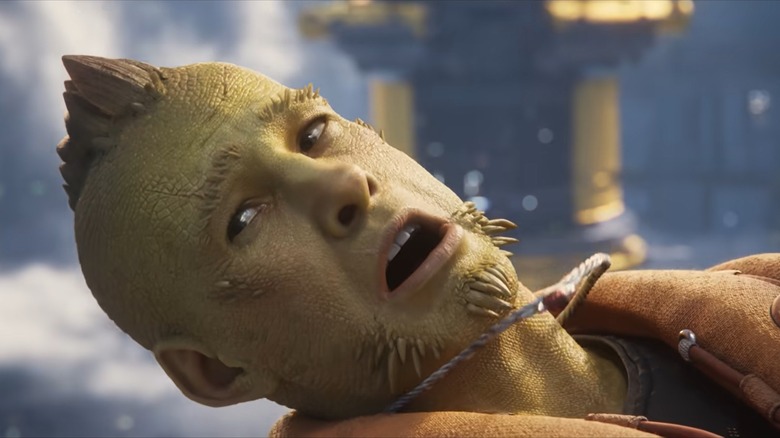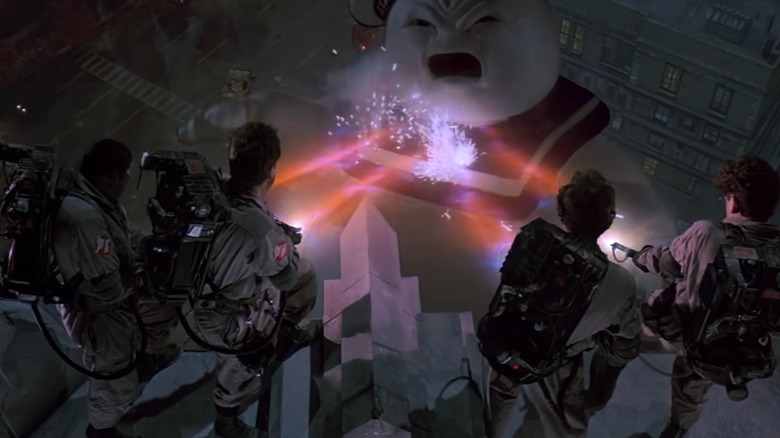The 10 Apps, Services, And Brands You Might Not Realize Are Owned By Sony
Sony is one of the biggest and most recognizable conglomerates in the world. The company started in 1946as a tiny electronic store occupying a little room within a Tokyo department store. Amidst figurative and literal ashes of World War II's aftermath, it produced Japan's first tape recorder and grew by leaps and bounds. Today, you can find Sony's roots lodged in virtually every corner of electronics and entertainment.
When you hear the name "Sony," products like the Sony Walkman (which heavily impacted the entertainment industry) or the PlayStation probably spring to mind, but these are only two tiny aspects of a much larger inter-industry amalgamation. The company manufactures speakers, develops video games, and even produces movies. Heck, even though Spider-Man is a Marvel property, Sony owns the rights to the wall-crawler insofar as movies and video games. This partial proprietorship has produced many memorable movies, TV shows, and games, but also headaches whenever Spidey crosses paths with other Marvel characters.
Sony has managed to stick its fingers into many pies, largely by purchasing companies with differing specialties. Some of these acquisitions are common knowledge — almost every gamer knows that Insomniac Games and Bungie are now in the PlayStation family of studios. However, Sony's ownership of many other companies flies under the radar of audiences.
Here are 10 companies and their respective services that Sony owns.
Evo
Each year, companies such as Sony participate in expos and conventions that show off their latest products. For instance, Sony's PlayStation and its games are a common sight in the Consumer Electronics Show (CES) and the San Diego and New York Comic Cons (SDCC and NYCC, respectively). However, Sony is only a guest at these conventions. The company also runs a convention of its own, albeit one that doesn't show off upcoming offerings.
The Evolution Championship Series, or just Evo for short, is an annual fighting game competition where the best players in the world go head-to-head in a variety of titles. The expo hosts a different roster of games each year. Titles such as "Street Fighter, "Tekken," "Mortal Kombat," and "Guilty Gear" are frequent mainstays, and games like "Melty Blood," "Skullgirls," "Soulcalibur," and "Super Smash Bros" have shown up, albeit fleetingly.
Evo started in 1996 under the name "Battle by the Bay." The tournament didn't adopt its more well-known moniker until 2002, and it remained largely independent until Sony acquired Evo in 2021, in a joint venture with the Endeavor Esports company. Despite this change in ownership, Sony says it is committed to keeping Evo a "grassroots competitive platform for fighting games." Every game in the tournament is available on multiple platforms, and Sony hasn't even mandated the use of the Dualshock 4 or the DualSense controller — which we think could be the best controller ever made — as participants gravitate toward fight sticks. Sure, "Super Smash Bros." is no longer on the docket, but Evo dropped that game before Sony even purchased the event.
Jeopardy!
Game shows irrevocably changed the course of U.S. entertainment. The lights, the sounds, the possibility of winning fabulous prizes, and that you, dear viewer, might one day participate! What wasn't to love?
"Jeopardy!" is arguably one of the most popular and longest-lasting game shows ever. The show was the brainchild of Julann Griffin, ex-wife of media mogul Merv Griffin. She came up with the idea of giving contestants answers they had to create questions to as a response to game show scandals of the 1950s. While "Jeopardy!" began airing in 1964, the show didn't truly gain traction until 1984 thanks to Alex Trebek. He served as the face of the show until he retired due to a terminal illness in 2020, and remains its most beloved and recognizable host.
Sony's road to ownership is not as straightforward as many of its other acquisitions, but it's not circuitous, either. "Jeopardy!" was originally produced by Merv Griffin Enterprises. When that company folded in 1994, Columbia Tristar Television picked up the rights, gaining ownership of "Jeopardy!" and other game shows associated with Merv Griffin, including "Wheel of Fortune." By that point, Sony had already acquired Columbia Tristar (more on that later), which in turn gave Sony ownership over "Jeopardy!" and its production by default. It's sort of like how Microsoft acquired Activision-Blizzard, and therefore now owns "Call of Duty" and "World of Warcraft."
Crunchyroll
As an entertainment company based in Japan, Sony unsurprisingly has close relationships with several anime production studios. It even has partial ownership over industry titans like Madhouse ("Trigun," "Death Note," and "Overlord") and Toei Animation ("One Piece," "Digimon," and "Dragon Ball"). Sony also owns the service that hosts many of these aforementioned shows.
In the world of anime streaming, few companies can rival Crunchyroll. The service began, surprisingly enough, as an anime pirate hosting site. In 2008, the company took its first steps toward legitimacy thanks to a generous injection of venture capital. One year later, Crunchyroll became a fully legitimate anime streaming service. Today, it's one of the most popular platforms available, hosting countless titles new and old, and offering a streaming app available on computers, smartphones, game consoles, and smart TVs.
While Crunchyroll said goodbye to its pirating ways in 2009, the company would change hands several times before it finally flew Sony's flag, with previous owners including the Chernin Group and AT&T. Sony officially acquired Crunchyroll in 2020/2021. However, audiences viewed this news with skepticism since Sony had previously acquired the anime distribution behemoth Funimation. Anime fans wondered what would happen since Sony was doubling up on anime services. The answer unfortunately came in 2022, when Sony started rebranding Funimation's services with the "Crunchyroll" name. And then Sony announced that while Funimation subscriptions would be grandfathered into Crunchyroll accounts, digital libraries would not. Yet another reason to stick to physical media.
Nixxes Software
Since PlayStation is part of the Sony brand, every game studio owned by the company programs with PlayStation architecture in mind. Many older PlayStation exclusives have been ported to other platforms, but most of these titles were originally developed by third-party companies. Sony, meanwhile, still needs help porting its proprietary titles.
While studios such as Sucker Punch and Guerilla Interactive receive tons of praise for developing games like "Ghost of Tsushima" and "Horizon: Forbidden West," it falls to Nixxes Software to make sure these titles work on non-PlayStation platforms. This company has been responsible for porting most of the erstwhile PlayStation-exclusives available on Steam, including the above-mentioned titles. It's probably working on more ports as you read this article.
Nixxes Software has spent its entire life as a porting jockey. The company started in 1999, and ported entries in the "Legacy of Kain" franchise, before eventually moving on to household names such as "Tomb Raider" and "Deus Ex." Sony acquired Nixxes in 2021 to help port even more PlayStation properties to Steam. One can be forgiven for assuming Sony doesn't own Nixxes because while the company is responsible for much of PlayStation Studios' Steam library, all the other companies that contributed to this game catalog are independent studios. Although, how much do you want to bet Sony might soon try to purchase these companies in the near future?
Several movie production studios
While Sony is mostly known for its contributions to the music and game industries, it's a big player in the film industry too. Sony used to help studios ship their movies to home theaters, and now it tells some of those studios what movies to make.
As previously stated, Sony owns Columbia Tristar, but that is only one of many studios to make up Sony's movie branch, Sony Pictures. This portfolio also includes big names like Screen Gems and smaller indie-focused organizations like Stage 6 Films. Sony Pictures' reach also extends to TV firms such as Bad Wolf (which produces "Doctor Who") and Embassy Row (which has been producing "Who Wants to be a Millionaire" since 2020).
It's easy to forget that all these film and TV corporations are part of the Sony family since — depending on how old you are, the acquisitions took place before you were born. For instance, Sony bought out Columbia Pictures way back in 1989, and since Tristar merged with Columbia in 1998, the resulting entity, Columbia Tristar, fell under Sony's ownership. And because Columbia has owned Screen Gems since the 1930s (yes, it's that old), Sony acquired that studio when it purchased Columbia. Sony's TV acquisitions, meanwhile, were much more recent. The Bad Wolf buyout, for instance, occurred in 2021, whereas the Embassy Row purchase took place in 2009. If Sony hadn't bought many of these companies, we wouldn't have gems such as the "Spider-Verse" series or the recent "James Bond" films.
Aniplex
When we stated Sony doesn't own any anime production studios, that was a half-truth. Sony hasn't purchased any companies that only produce anime, but the company owns an entertainment giant that lists anime production as one of its many responsibilities.
Aniplex is a major player in the anime industry. The company has produced and distributed countless titles that it both owns and licenses from other studios. If you are a fan of titles like "Bleach," "Cells at Work!," "Demon Slayer," or "Gurren Lagann," you owe Aniplex a world of thanks.
It's easy to forget Sony owns Aniplex, because it never really acquired it. Aniplex has been a part of the family ever since the subsidiary was founded in 1995 as a joint venture between two different branches of Sony, specifically Sony Pictures Entertainment and Sony Music Entertainment. Back then, Aniplex was known as "SPE Visual Works." In 2001, Sony Music Entertainment gained full ownership of the company and renamed it "SME Visual Works." The Aniplex we know and love didn't truly emerge until 2003, when SME Visual Works rebranded a final time. And what was the first anime the newly-renamed company helped produce? Just the seminal classic "Fullmetal Alchemist."
Pixomondo
Sony might own several film production and distribution companies, but these are far from the only crucial components of filmmaking. Many movies, especially those of the fantasy or sci-fi variety, require special effects. Regardless of whether these special effects are built by hand or on a computer, filmmakers usually need to hire a company that specializes in their construction.
Pixomondo is an award-winning visual effects studio with teams dotted around the globe. Even if you haven't heard of the company, odds are better than good you've seen their work. Pixomondo was responsible for visual effects in movies such as "Super 8," "Overlord," "Wonder Woman," and "Iron Man 2." The company also played a hand in the production of award-winning shows such as "The Boys," "Game of Thrones," "The Orville," and "Westworld."
Sony's purchase of Pixomondo is actually fairly recent. The companies announced the acquisition in 2022. Quite expectedly, Sony's Chairman of Global TV Studios and SPE Corporate Development Ravi Ahuja stated that Pixomondo would help make all the shows Sony produces for its streaming services and network partners "even more exceptional." However, despite changing hands, it's business as usual for Pixomondo. The company has worked on mostly non-Sony projects, including "John Wick: Chapter 4" and "House of the Dragon." So far Pixomondo's only Sony-owned work was on the "Gran Turismo" movie, but that might soon change. Odds are Pixomondo will be in charge of the visual effects for future live-action adaptations of Sony-owned properties, such as the upcoming "God of War" show and "Gravity Rush" movie.
Gaikai
Like Microsoft, Sony is investing time and money into video game streaming. Both companies let players remotely control their consoles through apps, and Sony's latest handheld is nothing more than a dedicated remote play device. But without one particular acquisition, Sony might not have been able to offer any remote play services.
Gaikai started life in 2008 as a streaming and cloud gaming service. Company founder David Perry demonstrated that the system could run a variety of games off a browser, from "Spore" to "Super Mario Kart 64." He even used Adobe Photoshop with the service and claimed Gaikai could help "zero out piracy." However, Gaikai didn't live long enough as an independent entity to capitalize on this feature.
Sony quickly snatched up Gaikai and bought the company outright in 2012; it was still considered a startup at the time, so the news probably passed over many gamers. This purchase enabled Sony to provide game streaming services via the Remote Play app as well as cloud gaming. While the latter used to be part of the PlayStation Now subscription, it has since been rolled into the Premium level subscription of PlayStation Plus. One of Gaikai's less talked about contributions to the PlayStation gameplay experience is Share Play, which lets users stream screens to their friends and play together as if they were in the same room. And yes, Gaikai's technology also powered the Remote Play functionalities on the PlayStation Vita, which lives on through the PlayStation Portal.
Firewalk Studios
As previously established, plenty of game studios are working on Sony's behalf, and many are big names, including Naughty Dog and Housemarque. However, Sony is also associated with more forgettable developers, including some that gamers actively want to forget.
The name "Firewalk Studios" isn't that well-known amongst gamers, but almost everyone who pays attention to the gaming industry is all too familiar with its first game: "Concord." The title was a team-based hero shooter that tried to copy the vibe of the "Guardians of the Galaxy" movie and game. Firewalk Studios had high hopes for "Concord," expecting it to become a new multimedia juggernaut. The studio allegedly spent eight years developing the game, but due to appallingly low sales numbers and even lower active player numbers, it only lasted a little over eight days.
Sony reportedly spent around $400 million on the game's development, but it's easy to forget that Sony didn't just fund "Concord" because the company had faith in the game; Sony actually owns Firewalk Studios outright. The company started in 2018 under the indie game company ProbablyMonsters. Sony purchased Firewalk in 2023 as part of an exclusive publishing partnership that started in 2021. Given the timeline, odds are Sony purchased Firewalk because executives saw "Concord" in its early days and wanted to be the sole distributor. That move has shaken gamers' faith in Sony.
Multiple beloved film and TV franchises
Sony's dealings in the entertainment industries have garnered the company partial ownership over several properties. We already mentioned Spider-Man's movie and video game rights, but that is only one example. Sony owns 39% of the "Peanuts" brand, Snoopy and all, but the company also owns 100% of a few movie and show franchises. And no, we're not just talking about the HBO adaptation of "The Last of Us."
Due to how TV and movie rights work, companies usually own the properties they help produce and distribute. In Sony's case, it owns "Breaking Bad" since Sony Pictures Television helped produce the show alongside High Bridge Entertainment and Gran Via Productions. Sony also holds the entire "Ghostbusters" franchise, since each film was produced and/or distributed by Columbia Pictures. And yes, this includes the much-maligned 2016 reboot. Let's not reopen old wounds.
Sony's claim to franchises isn't limited to recent properties. For instance, "Charlie's Angels" is an all-but-forgotten series of TV shows and movies that falls under Sony's banner thanks to Columbia Pictures having scooped up the rights. Sony also technically owns the "Men in Black" franchise due to, you guessed it, Columbia Pictures serving as a main production company. While this "production/distribution equals ownership" rule is far from universal, you'd probably be surprised just how many Sony-owned franchises squeaked by without you noticing.
